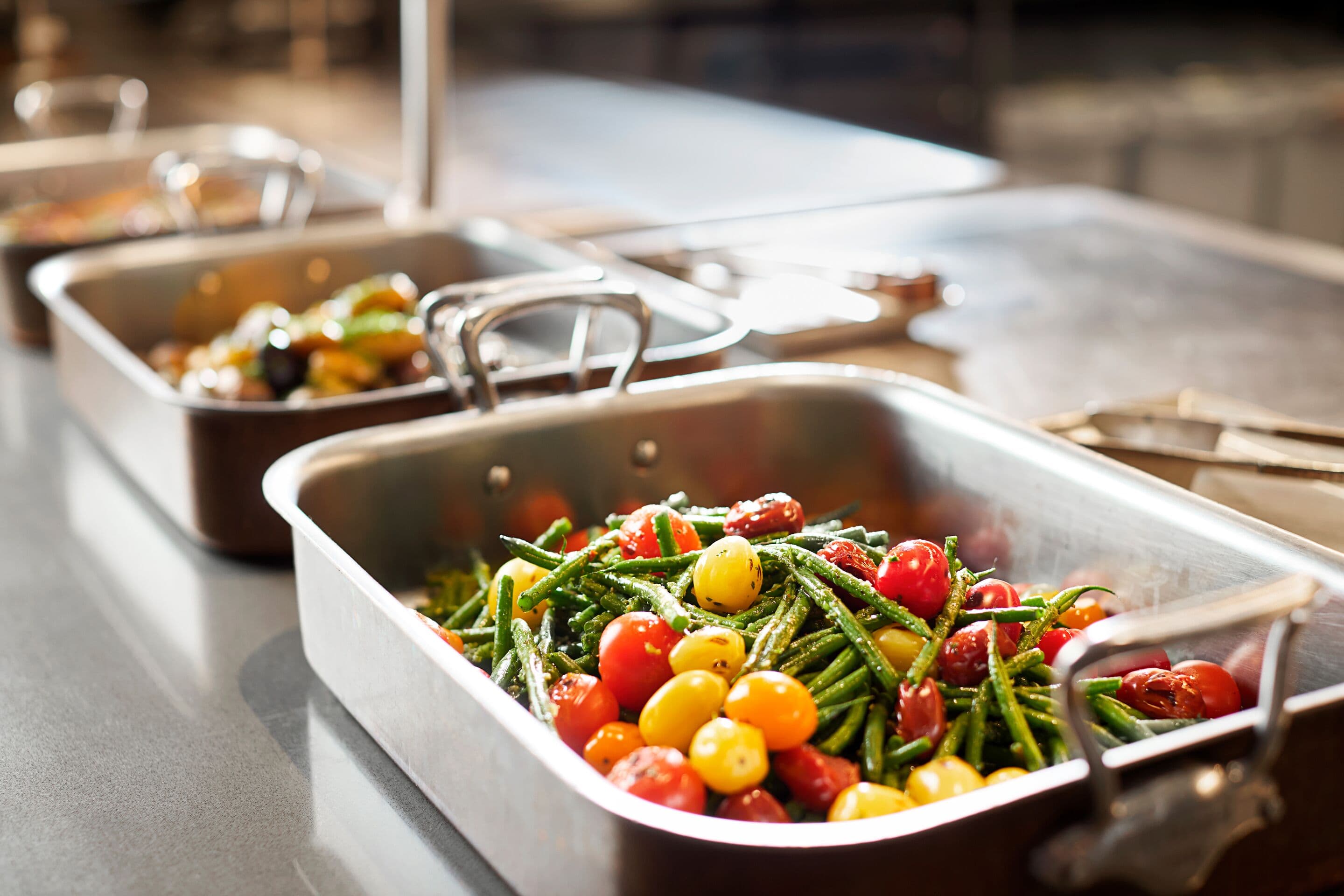Guckenheimer Launches Zero-Waste Cookbook, Making Sustainable and Affordable Cooking Accessible to All

Food waste accounts for $162 billion in losses to the U.S. restaurant industry and up to $1,650 to households per year.
NEW YORK, NY – May 29, 2025 – Guckenheimer, the foodservice brand of workplace experience and facility management leader ISS, has released its inaugural Zero-Waste Cookbook. Developed in Guckenheimer’s f.i.t. Kitchen (Food Innovation Test Kitchen) in collaboration with chefs across the United States, the collection shows home cooks and culinary professionals alike how to make affordable, delicious and plant-forward recipes using ingredients that often go to waste. Highlights include a Korean smash burger with watermelon rind kimchi, fennel frond and stalk pesto, Swiss chard stem fries, penne and zero-waste marinara, and leftover donut bread pudding.
The cookbook is a natural extension of Guckenheimer’s goal to reduce food waste by 50% by the end of 2025 across nearly 250 North American locations. Through a combination of AI-powered food waste tracking and chef-driven menu innovation, Guckenheimer surpassed its goal a year early — cutting food waste by 64%. That reduction equates to over 963,000 meals saved and more than 1,500 metric tons of CO2e emissions avoided. Now, those lessons, strategies, and recipes are being shared with the public.
"This cookbook reflects the creativity, purpose and sustainability mindset our chefs bring to the kitchen every day," said Pete Rukule, Vice President of Culinary for Guckenheimer. "By sharing it with the public, we hope to inspire both health-focused home cooks and seasoned food industry professionals to reduce food waste, support local foodways, and unlock kitchen innovation that makes a real difference for our communities and the planet.”
Good for the Environment — and the Bottom Line
Reflecting Guckenheimer’s everyday practices at client sites, the Zero-Waste Cookbook spotlights commonly discarded food scraps — think peels, stems, rinds, and overripe produce — and turns them into delicious, waste-free recipes.
The financial case is compelling: according to Guckenheimer’s estimates, the average household wastes 330 meals per year. At $2 to $5 per home-cooked meal, that adds up to $660 and $1,650 annually. In the U.S. restaurant industry, food waste accounts for a staggering $162 billion in losses every year, according to the U.S. Department of Agriculture.
In addition to budget-friendly recipes, the cookbook is organized by prep time to suit busy schedules, from a five-minute overripe avocado chocolate mousse to 45-minute asparagus stalk soup.
Other features include:
Tips for smart storage and extending shelf-life
Creative flavor pairings using overlooked ingredients
Chef spotlights and behind-the-scenes kitchen stories
Connected recipes that make full-meal planning easy
Guckenheimer’s Zero-Waste Cookbook is available for free digital download. For more information and to access the cookbook, visit Zero-Waste Cookbook | Guckenheimer.
About Guckenheimer
As a premier provider of dining, catering and workplace experiences in commercial facilities, Guckenheimer partners with clients to create curated food solutions that transform traditional corporate dining spaces into signature destinations that offer restaurant-quality cuisine, promote whole-person health and inspire memorable connections.
Guckenheimer is part of ISS, a global leader in workplace and facility management serving more than 40,000 clients across 60+ countries. Through the expertise of 2,500 culinary professionals, the company serves thousands of chef-crafted meals each day in nearly 250 facilities in North America, while ISS manages food solutions worldwide. Together, their food programs have supported well-being, employee engagement, top performance, sustainability and positive, inclusive workplace environments.


